Marbella Chinatown booms, but faces criticism from traditional merchants
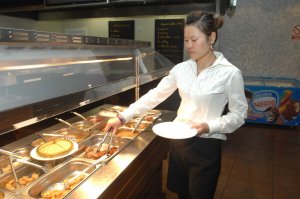
Most Chinese businesses in Marbella are restaurants.
Like many global cities, Marbella has a Chinatown. Although the municipal census lists only 520 Chinese citizens, shops run by Chinese residents have proliferated in recent years in all corners of the city, especially down-town, dedicated to selling clothes, shoes, accessories and food. The Chinese community is flourishing, and in doing so, it is challenging Marbella’s traditional business model by attacking the traditional waterline: prices.
As is often the case when a new immigrant community shows signs of succeeding where the indigenous community could not, the Chinese community is facing criticism for everything from quality of goods to allegedly unfair business practices and unfair tax advantages.
‘What they sell is not high-worth’, said Reme Toro, owner of Children’s Fashion Mata, a merchant on European Avenue with over thirty years of experience. ‘The shoes are all plastic, sold at 5 euros and people prefer to skin worth only 15 euros more’.
Others, however, take a negative view of what has often been seen as the strongest asset to the Chinese: their demonstrated willingness to work. ‘These shops do more harm than rain or malls’, says Mari Carmen Rull, owner of Margara Fruit. ‘They open when they want, all day, and we cannot compete against that. We are being killed’.
Some merchants talk about what they perceive as unfair tax advantages given to Chinese and other immigrant businesses.
City officials are quick to refute such charges, however. ‘That’s an urban legend’, says the councillor of Commerce, Alicia Jiménez. ‘The City Council requires the same documents from all traders who want to open in the city, regardless of nationality’, Jiménez said.
Xiabo Ye Yu, who runs Wang Wok Plaza del Mar with his wife, offers a similar response. ‘Who does not pay taxes? We pay like everyone else’, says Yu, a Chinese businessman in Spain for 12 years with a business administration degree from Zaragoza.
Possibly the most important advantage of the Chinese merchants is in its provisions of capital in cash, especially at a time when credit is not available to entrepreneurs. According to the few members of the community who agree to speak about their successes, in most cases the money comes from their country of origin.
The language barrier, however, is their largest hindrance. Of the Chinese entrepreneurs interviewed, few have completed enough Spanish studies to communicate effectively, and many still may simply not have the desire, or the time, to do so.
The secrecy of this community seems to be another significant barrier. Although Xiabo Ye Yu believes it would be excessive to call the community inaccessible, he attributes the perceived closed mentality of his compatriots to the demands of struggling to succeed in the economy, which he says requires them to stay close to their families and fellow Chinese rather than assimilating.
‘Many of my countrymen come with the mentality that in Europe it is not very easy to make a living. They come with the idea of working and only working. They work and work, but not for themselves. They work for their families’, he says.
Something similar explains the success of Linquin Chen. Two years ago this merchant purchased a Minimarket of 88 square meters on Market Avenue, paid for with hard cash. It is understandable then, that he has not heard of the word ‘mortgage’.
‘When I opened the store my parents gave me money and now that I am making enough, I am paying them back. They help me, and I help them so they can help the rest of the family’, Chen explains, assisted by his daughter of 15 who speaks Spanish fluently.
This mutual support makes the Chinese entrepreneurs a powerful presence even in Puerto Banus. In the Plaza Antonio Banderas, the business of Xueni Zheng and Lingont Zhang has grown impressively in a very short time. They are a married couple in their thirties who opened their shop near the Marina after facing the throes of the economic crisis in Alhaurín el Grande.
Their ignorance of the language makes Zheng and Zhang absolutely dependent on their employee Rocío García. Yet despite their difficulties communicating, García applauds them. ‘What they do know very well is how to manage the euro, especially now that business is not going too well’, he said, adding, ‘The crisis is for everyone’.
Zhen and Zhang pay about 6,000 euros per month for a room of about 250 square meters. ‘They can put up that money because it comes from China, but then what they earn goes back to China, too’, García noted.
When renting their reputation precedes them. Although they sell at ridiculous prices, labour costs are lower because the whole family works and because they are open later than normal. For example, on one door in China Bazaar, Puerto Banús, a sign tells the public: ‘Open Monday to Sunday. All day. 10:00 to 21:00′.
In this regard, the Councillor of Commerce again speaks in favour of the Chinese, bluntly explaining why such operations do not break the rules. “Traders can open 365 days a year with no free time provided that their premises do not exceed 300 square meters’, she says. ‘There is such freedom, and Chinese citizens usually take it’.
Some traditional merchants are more relaxed about the successes of the Chinese. Agapito Rios has been behind the counter River Castle Hardware for a few years. ‘They are competitive, but like any other merchant’, he says. He expresses confidence, however, that the traditional high-end models that have defined Marbella business will prevail. ‘In the end what makes your product dominate another is the expertise and service that is behind it’, he says.
The Association of Small and Medium Enterprises of Marbella and San Pedro Alcántara (Apymem), which has 1,500 associates, none of them Chinese, makes yet another allegation, however. Many Chinese merchants, they say, are selling too many kinds of products in the same space, and that, they say, is against the law.
‘It is unfair competition’, a representative from Apynem argues. ‘For selling bread and cakes you must have separate licenses, and many Chinese merchants do not’.
Others appear more tolerant. ‘We all have to eat’, says Toni Machuca of Antonio Fashion Store. Machuca, who belongs to the fourth generation of a merchant family, has spent his entire life serving this small town in the heart of the city on Castillejos Street. It just so happens that their neighbours in front and on the side are Chinese.
Disclaimer: The views, opinions and positions expressed within this guest article are those of the author John Grimmett alone and do not represent those of the Marbella Marbella website. The accuracy, completeness and validity of any statements made within this article are not guaranteed. We accept no liability for any errors, omissions or representations. The copyright of this content belongs to John Grimmett and any liability with regards to infringement of intellectual property rights remains with the author.




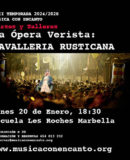
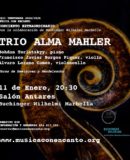
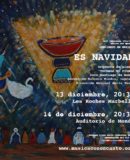




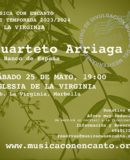


The opinions expressed by individual commentators and contributors do not necessarily constitute this website's position on the particular topic.